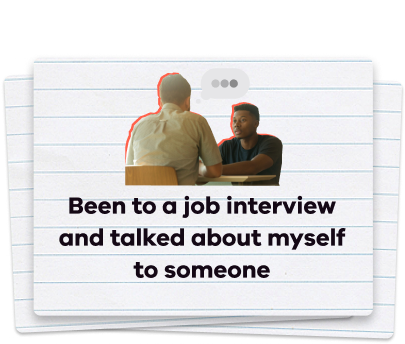When you apply for a job, you’ll probably be asked to nominate referees. A job referee is someone your potential employer can contact to find out more about you.
Your referee is someone who can tell the potential employer:
- what you're like as a person
- what you're like to work with.
Who to ask to be a referee
The best choice for a referee is someone who is a current or past:
- employer
- manager
- supervisor
- team leader
- work experience employer.
Other people you could ask include:
- people you've worked with
- customers or clients you've dealt with regularly.
- coaches of sporting teams you've played on
- teachers, librarians or principals from your school, TAFE or university
- people you've volunteered for.
It’s best not to use friends or family members as a referee.
Character reference from a referee
If you don't have any work experience (paid or unpaid), you could ask someone to give you a ‘character reference’.
A character reference tells the potential employer about the kind of person you are.
Some things a character reference could talk about include your:
- persistence
- willingness to learn
- intelligence
- being good with your hands
- honesty.
For ideas about qualities that employees are looking for, see our pages on:
How to find a referee
To find a referee, all you have to do is:
- work out who to ask
- ask for their permission
- get their preferred contact details.
What you need from your referee
Make sure you ask each of your referees for their:
- full name (double-check the spelling)
- job title
- current contact details.
What you need to tell your referee
When someone agrees to be your referee, they should be ready to answer phone calls or emails about you.
You should tell your referees about:
- the jobs you're applying for
- any job interviews you have (so they can be ready to be contacted)
- any specific qualities or skills you'd like them to emphasise.
If you're applying for lots of jobs, you don't have to let them know about every single application. Just tell them you're looking for work so they know they might get a call.
How many referees you need
Most job advertisements tell you how many referees are needed. If it's not specified, the usual number is two.
If you have more than two referees, pick the ones that:
- match the job you're going for best
- will say the most positive things about you
- will be easiest for the employer to contact.
Written references
Only send a written reference if you're asked to. Most employers usually talk to referees in person or by telephone.
A written reference is a letter written by a referee that explains:
- your relationship to the referee
- the kind of work you did with them
- how well you did it
- what you were like to work with.
If you only have character references, they could write a reference that explains:
- how they know you
- what kind of person you are
- what kind of qualities you have
- why you would make a good employee.
How to include referees on your resume
Usually, you put referee details at the end of your resume. There are two ways to do this. You can either:
- list each referee, providing their name, job title and contact details
- list only the name and job title of your referees, with ‘Contact details available on request’ written underneath. You then give their contact details when asked.
If a job advertisement specifically asks for referees' contact details to be provided, make sure you include them on your resume.
For more about writing resumes, our how to write a resume has more information.
Stay in touch with your referees. Once you’ve heard back after a job interview, contact them.
- If you got the job, let them know and thank them for their help.
- If you didn't get the job, thank them anyway and ask if you can find out about the questions they were asked by the prospective employer (this could help with future applications).
For tips on looking and applying for work, visit these pages:

